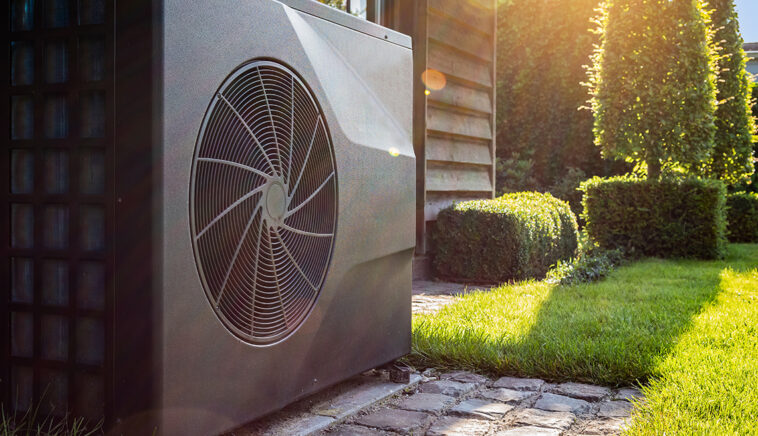Coughs, colds and runny noses are all symptoms we experience during the cold, wet winter months. But now, with COVID-19 in the mix, it’s more important than ever to make healthier choices that can help us avoid any viruses or flu. While we all know some basic ways of preventing ourselves from becoming unwell, such as regular handwashing and eating healthily, there are other ways to reduce our chances of becoming ill.
One simple step, which is often overlooked, is installing a heat pump in our home. But can a heat pump really impact your family’s health? If you want to know how a heat pump can benefit your family’s health, keep reading below:
1. Improves the Air Quality for People with Breathing Conditions
Anyone who suffers from a breathing difficulty, such as COPD or asthma, can benefit significantly from installing a heat pump. This is because not only do heat pumps help to circulate fresh air, but they also remove unwanted particles such as dust and mould spores which can irritate a breathing condition.
2. Reduce Chances of Catching Flu or Other Nasty Bugs
While it’s almost inevitable that you will catch a bug from time to time, installing a heat pump can help to reduce your chances of catching one. Bugs and flu viruses are transported in the air. If this air isn’t filtered, these bugs will remain in the air for you to catch. A heat pump cleans and purifies the air, making it much better for you to breathe in.
3. Lessen Your Chances of Suffering from Depression

We are currently experiencing a cost-of-living crisis. This crisis is forcing many people, particularly elderly individuals, to turn off their heating as they can no longer afford it. This is having a negative impact on our mental health.
While being cold doesn’t cause depression, a recent study found people who lived in warm properties of between 18 and 21 degrees Celsius were over 50% less likely to suffer from anxiety or depression than those unable to heat their homes.
But how can a heat pump help in this situation? It’s pretty straightforward. Heat pumps like the ones found at https://www.bpcventilation.ie/blog/heat-pumps-ireland/ are significantly cheaper to run than other heating devices. This means that people who install a heat pump would be able to have their heating on much more than they could before.
4. Reduce Your Chances of Strokes and Heart Attacks
According to the NHS, keeping warm over the winter months doesn’t just reduce our chances of catching colds and the flu. They also believe it can prevent certain conditions like strokes and heart attacks.
How to choose the right heat pump
When it comes to managing your home’s temperature, you want the best possible system. A heat pump is an efficient and cost-effective way to keep your home warm through winter, cool in summer, and comfortable year-round. Here’s a guide to help you choose the right heat pump for your home.
Consider the Size of Your Home

One of the most important things to consider when choosing a heat pump is making sure it’s the right size for your home. An undersized system won’t heat or cool correctly, causing strain on both components and wasting energy. On the other hand, an oversized unit will overheat or overcool rooms resulting in uncomfortable temperatures and having more power than necessary. It’s important to factor in the overall square footage of your space to ensure that you get exactly what you need. If you’re unsure about how much space you should cover, consult a heating specialist who can measure your home’s needs accurately.
Figure Out Your Efficiency Needs
Another factor when choosing a heat pump is determining what level of efficiency you need. The efficiency rating on most pumps is measured by Seasonal Energy Efficiency Ratio (SEER). All residential units must have at least 13 SEER while some high-efficiency systems are rated up to 24 SEER. Generally speaking, higher SEER ratings mean lower energy costs but also come with a bigger price tag up front.
Determine Type of Fuel Source Needed
Heat pumps are powered by either electricity or natural gas and propane depending on local availability and personal preference. Electricity is usually reliable since it doesn’t rely on underground lines or weather conditions like gas does; however, gas pumps tend to be less expensive due to fuel costs being lower than electric rates in most locations throughout North America. On top of that, if electricity prices increase significantly over time, running a gas/propane-powered system could save money long term as its fuel source remains consistent in price per BTU (British Thermal Units). Ultimately before making a decision here you’ll want to determine which type of fuel source is available in your area as well as which will be more cost effective based on your location’s current electricity rates versus natural gas/propane rate per BTU used over time .

Don’t Forget About Maintenance Costs
Finally when it comes time to pick out a new heat pump don’t forget about any potential maintenance costs associated with each model available as this could make one option more affordable than another in addition just buying outright! While some compare initial purchasing prices only not considering future upkeep expenses such as potential filter changes or hose replacements this should be taken into account so that you aren’t hit with unexpected bills down the road!
Heat pumps have been around for many years now. However, they didn’t become popular until recently. One of the main reasons for this is that people didn’t realise the benefits of installing a heat pump in their homes. There are, in fact, many benefits of heat pumps. As well as helping to improve air quality, they can save you significant money on your energy bills. And that’s not all, since heat pumps are also much better for the environment. If you’re looking for a heating and cooling system for your home, make sure you check them out.




